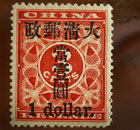Podcast
Beijing furious at arms sale
Updated: 2010-02-01 13:54
 |
Large Medium Small |
In its toughest response in three decades to US arms sales to Taiwan, Beijing announced over the weekend that it would curtail military exchanges with Washington, and sanction US companies involved, and warned of severe harm to bilateral ties.
Though overall relations between the two world powers are unlikely to collapse over the single issue, Chinese experts said, their cooperation on key international matters such as those related to Iran, Afghanistan and the Democratic People's Republic of Korea (DPRK) could be severely impacted.
The Obama administration notified Congress on Friday of its proposed arms deal to Taiwan, a $6.4 billion package.
The sale includes 60 UH-60M Black Hawk helicopters, 114 Patriot "Advanced Capability-3" anti-missile systems, and command-and-control enhancement. The US also will supply 12 advanced Harpoon missiles, plus two mine-hunting ships.
The package, however, did not include F-16 fighter jets, a deal many believe could have seriously roiled US-China relations.
The deal, which the Pentagon said would "serve US national, economic and security interests", is pending approval of the US Congress.
Beijing responded furiously with a raft of reprisals.
The Ministry of National Defense announced Saturday that it would suspend military contacts with Washington and vowed to "closely follow the situation and make an appropriate response".
The Foreign Ministry said it would impose sanctions on US firms involved in the deal, despite Beijing's long-standing reluctance to use official sanctions in international disputes.
It did not specify which companies could potentially be affected.
It also warned of "severe harm" to bilateral relations and declared the cancellation of a vice-ministerial level consultation with Washington on security, arms control and nuclear nonproliferation scheduled soon.
(中國日報網英語點津 Helen 編輯)

About the broadcaster:
Lee Hannon is Chief Editor at China Daily with 15-years experience in print and broadcast journalism. Born in England, Lee has traveled extensively around the world as a journalist including four years as a senior editor in Los Angeles. He now lives in Beijing and is happy to move to China and join the China Daily team.







